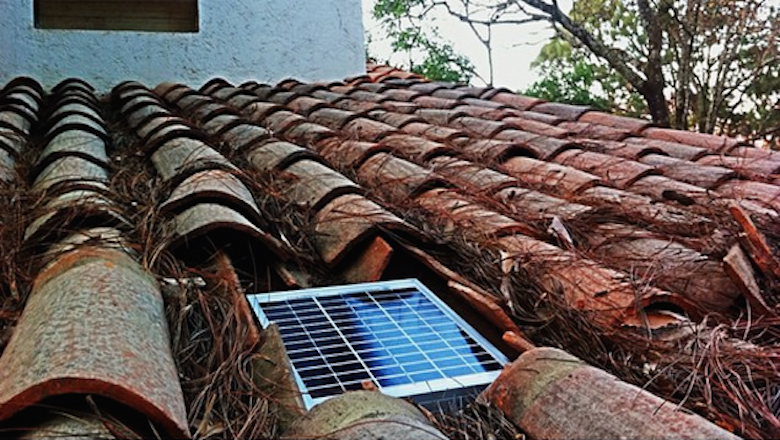One out of every seven people on the planet lack access to electricity, according to the World Bank, and 2.9 billion live without modern fuels for cooking and heating. This effectively bars them from the modern economy, and also creates widespread social and environmental problems.
In this world without electricity, productive hours for working adults are limited to daylight hours, and these jobs typically are low-tech and low-paying. Children can’t study at home after dark, which puts a damper on education. I witnessed this firsthand late last year during a trip to Mathare, a slum in Nairobi, Kenya.
Simply put, nearly everything in the modern global economy relies on electricity to function.
Commercial buildings, industrial facilities and, of course, homes all require electricity to work in the 21st century. The Internet, which forms the digital infrastructure of e-commerce, relies on physical infrastructure capable of generating and delivering copious amounts of energy to data centers.
Global demand for electricity is expected to grow by 56 percent between 2010 and 2040. Most of this increase will come from developing countries, often referred to as the global South, where strong economic growth is driving demand. That's an anticipated uptick from 524 quadrillion Btu to 820 quadrillion Btu, according to the U.S. Energy Information Administration.
But energy growth isn’t the same as energy access, and the latter could continue to be a problem in the world’s poorest regions.
Luckily, in many off-grid regions, small-scale solar and wind technologies, as well as microgrids, are helping to bring electricity to entire swathes of humanity.
Increasing off-grid access in Haiti
Haitian off-grid utility startup RE-VOLT is on a mission to bring affordable and reliable electricity to families in rural Haiti and is running a crowdfunding campaign to help fund the expansion of its service to more customers, according to a recent announcement.
RE-VOLT recently launched a campaign on crowdfunding site Indiegogo in order to raise the working capital necessary to grow its customer base on La Gonave to 2,000 households or 10,000 people by January 2016.
Through the installation of a system consisting of a solar panel, a control/power storage unit, several lights and a phone charger, RE-VOLT is bringing power to the people in rural Haitian homes for the first time. Customers are charged a low monthly fee of 250 Haitian Gourdes (about $5) and pay for the service through the mobile banking platform Digicel Mon Cash. RE-VOLT can manage payments and maintenance remotely through the units' internal cellular antenna.
Founded by Digicel Haiti chairman, Maarten Boute, RE-VOLT currently serves more than 800 customer households, or about 4,000 people, on the island of La Gonave, one of the most isolated and impoverished communities in Haiti. An on-the-ground sales team made up of La Gonave locals goes door-to-door to find new customers and makes regular visits to open-air markets, a central part of daily life in rural Haiti. The team also performs basic maintenance and troubleshooting on installed systems.
The idea for RE-VOLT's business model came to Boute over five years ago in the aftermath of Haiti's devastating 2010 earthquake, the announcement said. At the time, he was two months into his tenure as CEO of Digicel Haiti, having previously served as the company's chief operating officer.
Under Boute's leadership, Digicel Haiti's subscriber base grew from under 2 million customers in 2010 to over 4.5 million in 2014, when Boute relinquished his duties as Digicel Haiti's CEO to co-found RE-VOLT along with former Digicel executive, Darragh Dolan.
The idea was a regular topic of conversation between Boute and Dolan, a chartered accountant and former professional mountain climber who at the time was Digicel Haiti's Head of Special Projects. Dolan and Boute were prompted to launch RE-VOLT last year because both felt that the time was right for a variety of reasons, including higher daily household demand for electricity due to the increasing penetration of power-hungry smartphones and the plummeting price of solar system components, such as solar panels and batteries.
Bringing solar power to Mexico’s off-grid communities
Iluméxico, a Mexican social enterprise focused on solar power, recently joined the Business Call to Action (BCtA) with a commitment to bring its Solar Home Systems to 50,000 off-the-grid rural homes — approximately 300,000 people — by 2020. BCtA is a global initiative that encourages companies to fight poverty through innovative business models, supported by the United Nations Development Program (UNDP) and other international organizations.
This commitment includes the creation of 180 new jobs, of which 90 will be designated for women and 70 will be based in rural communities.
The company says it plans to increase its “ILU Centros” support network from 5 to 50 locations nationwide and strengthen alliances with both public and private institutions. Anticipating up to 70 percent growth within the next five years, Iluméxico also plans to expand its business into two new Latin American countries by 2020.
More than 3 million Mexicans, or 600,000 households, live in remote, rural locations, Iluméxico said. Their geographic location and isolation make it difficult and expensive for government infrastructure and electrification projects to reach them. Iluméxico’s business model taps into this unmet need through the design and manufacture of a wide range of solar systems for bottom-of-the-economic pyramid markets.
Approximately 60 percent of Iluméxico’s customers are indigenous and all live in isolated areas in communities of less than 100 households, the company said.
Starting in 2010 as a conventional philanthropy, the company has transformed itself into a for-profit social enterprise, which has enabled it to advance technologies and diversify its product portfolio to meet customer demand. Iluméxico’s last-mile distribution strategy reaches remote communities through a hub-and-spoke model that employs local technicians and provides customers with flexible financing. This model allows clients to save up to 10 percent of their monthly incomes and reduce the use of polluting and hazardous lighting sources such as diesel and candles, the company said. It also provides environmental awareness, financial education and community organization workshops.
(Image at top by Iluméxico)

